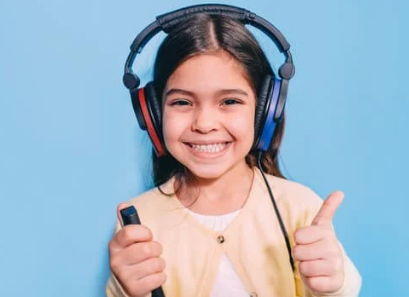Assessments:
SCHOOL-BASED ASSESSMENTS INCLUDE: - Academic assessment
- Assessment of personal and social responsibility
DISTRICT ASSESSMENTS INCLUDE: - Psycho-educational assessment
- Behavioural assessment
- Hearing screening
- Physio/occupational or diverse needs assessment
- English as a Second Language (ESL) assessment
- Speech and Language assessment
|
Competency-based Individual Education Plan (CBIEP)
Once a student is identified as meeting the criteria for a Ministry designation, teachers, parents, and other caregiver come together to develop a Competency-Based Individual Education Plan (CBIEP). A CBIEP outlines what parents, students, and others can expect regarding a specific student’s educational program. A CBIEP contains: - Student Profile: the student’s strengths and stretches
- Goals: learning outcomes
- Objectives: what we want the student to be able to do – what we measure
- Strategies: what the adult supports need to do to help the student meet their objectives
- Supports: specified universal and essential supports tailored to the student’s needs
|
Consultation ServicesThe district employs a collaborative, consultative format in which teachers, parents, and support staff jointly plan programs for students. Currently, consultation services are provided for: - Children with behavioural and emotional considerations

- Children with speech and language considerations
- Children with vision and/or hearing differences
- Children requiring physio or occupational therapy
- Children with mild, moderate, and severe learning support considerations
- Hospitalized/home-bound children
|
Counselling Services
Sometimes students need help with personal and social matters. Elementary counsellors consult with and provide direct services to parents, teachers, and administrators, in order to:
- Assist students build skills to help with their emotional regulation

- Assist students build their social skills
- Coordinate school meetings with school staff and families to build student support plans
- Assist families with community agencies and if needed, coordinate team meetings
|
District Psychologists
The District Psychologists provide psychological services and consultation for students, parents, and teachers in order to address learning, behaviour, and emotional concerns. The District Psychologists provide psycho-educational assessments as part of the process in addressing these concerns.
|
ELL Teachers and Educational Assistants work with students who are learning to speak English. Service starts with a referral from the student’s school. ELL teachers and educational assistants work with administrators, teachers, and parents to assist students with: - Language development
- Pronunciation
- Cultural adaptation
- Fluency
(*Click the ELL Heading above for more information)
|
Employability Skills ProgramSecondary students in inclusive or alternative programs are provided with: - Pre-employment and life skills training
- Supervised work experiences in the community
- Training, placement, and evaluation
We are very excited to see how many employers of Mission have embraced our program to have our students join their workforce for experience in the working community!
|
Hearing Services
The Teacher of the Deaf and Hard of Hearing works with students, teachers, and parents. They also liaise with a variety of community agencies supporting the deaf and hard of hearing. The Teacher of the Deaf and Hard of Hearing may provide: - Direct instruction

- Teacher in-service
- Consultation service
- Direct liaison with certified Audiologists
- Referral coordination to Provincial Programs for Oral and Signing Deaf students
- Equipment Management
|
Inclusive Support ServicesServices for students vary with the complexity of the needs of the student.
SERVICES FOR STUDENTS WITH COMPLEX SUPPORT NEEDS:Some students, especially those dependent for many or all mobility needs, receive services organized through highly specific Competency-Based Individual Education Plan (CBIEP) goals. Their program may involve health, academic, and personal care goals and often access many community resources. Services for these students are provided by a multidisciplinary team.
Services may include: - District consultation (e.g., planning, speech, vision, hearing)
- Physio-occupational therapists
- AquaLearn
- Community agency support
- Provincial outreach programs
- Community and career exploration
- School-based personnel
SERVICES FOR STUDENTS WITH MODERATE SUPPORT NEEDS:Students with moderate support needs, including some students who have autism, physical or chronic health concerns, or Moderate Intellectual Ability, are also supported by Competency-Based Individual Plan (CBIEP) goals. These students may have delays in communication, perception, coordination, or self-help skills.
Services for these students may include: - School-based personnel
- Consultation with district specialists for educational planning, communication, and behaviour planning
- Occupational therapist consultation
- AquaLearn
- Community access and work experience
- Provincial outreach programs
SERVICES FOR STUDENTS WITH MINIMAL SUPPORT NEEDS:Some students with minimal support needs, including some students who have autism, physical, or chronic health concerns, or Mild Intellectual Disability are also supported by Competency-Based Individual Education Plan (CBIEP) goals.
Services for these students may include: - Learning Assistance
- District consultation
- School-based personnel
- Community access and work experience
- AquaLearn
|
Learning Support ServicesServices for children with Learning Disabilities are organized using specific Competency-Based Individual Education Plan (CBIEP) goals and objectives, which are directed towards the student’s areas of need. Regular classroom instruction may need only minor adjustments or supplementation. Services for these students may include:
- School based personnel support
- District consultative services
|
Speech and Language Services
Speech Pathologists provide assessment, consultation, and therapy to students with disorders of communication in the following areas: - Speech production
- Language: Vocabulary, Sentence structure, Comprehension, Processing, Literacy
- Fluency disorders (stuttering)
- Voice
- Nonverbal students requiring augmentative communication systems
- Speech Pathologists work with parents and teachers and liaise with outside agencies
|
Vision ServicesThe Teacher of Students with Visual Impairments works with parents, teachers, and students. They work with the children that have been diagnosed as visually impaired by an appropriate medical specialist. The Teacher of Students with Visual Impairments may provide:
- Teacher in-service

- Direct instruction
- Orientation and mobility services
- Liaison with community agencies
|